Cardinalfandom - Cardinal's Moss
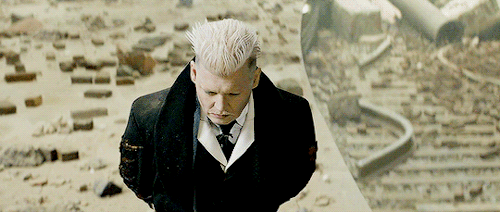



More Posts from Cardinalfandom and Others
all of those funeral options like the tree pod or mushroom shroud or urn with seeds that "feeds" the tree are uhhhh, bullshit. unfortunately. if you want to be a tree when you die, be buried in the ground without a francy casket or embalming, and have a tree planted above you. this is the same thing as any of these hypothetical "tree pods" but it's skipping the scammy cash grab companies trying to capitalize on grief with fake ass science.
cremated remains will not "feed" anything, either. they'll probably impede growth, tbh. cremated remains are non-organic. what's left over after a cremation is hollow, dry, brittle bone fragments that someone like me sweeps up and puts in a big metal blender to create the smooth "ashes" one expects. By all means, go ahead and scatter ashes in nature, but don't expect anything to grow from them.
If you want your body to return to nature after death, go for a green burial or an at-sea burial. there are many dedicated green burial sites in the world, and one also has the option of simply being buried in a more traditional cemetery that allows for simple wicker caskets w/o a vault around them, and the body left unembalmed. If the tree thing is really your jam, go for burial in a dedicated green cemetery that allows your family to plant a sapling above you, or if it is available where you live have your body composted and use the soil to grow plants.
tldr; there are options for green funerals out there, and options for "becoming a tree," but I would not recommend going anywhere near products offering this such as tree pods, etc. as they are expensive scams preying on people's grief for their dumb start up. get composted or green buried 💚🌲 source: I'm a mortuary scientist and provider of both traditional funerals/cremations & green burial/at-sea burial.
Not actually from an episode but still
“Stories cannot protect us from the void, but they can protect us from staring too long into it.” Jeffery Cranor, director’s note for Welcome to Night Vale Episode 90 “Who’s a Good Boy? Part 2”
I miss when everyone on my dash listened to Welcome to Night Vale so there’s be a good chance that on any ole day someone would reblog a quote that would grab me by the throat and forcibly ascend me to a higher plane where I understood myself and the universe better and with more kindness but also a little spook
Basic Story Structure
Basic story structure looks like this:

Setup/Exposition - we meet the protagonist in their every day life, possibly meet a few other important characters, and learn important basics about the setting. We also learn about the protagonist’s internal conflict.
Rising Action - The inciting incident turns the character’s life upside down, the character responds by forming a goal. The protagonist pursues this goal while the antagonist/antagonistic force throws obstacles into their path, which they must overcome. Sometimes they succeed, sometimes they fail and have to try again or find a way around it. This struggle builds the conflict and increases the tension as the story races toward the climax.
Climax - this is the “big showdown,” where the protagonist faces the antagonist/antagonistic force head-on, and usually (but not always) succeeds.
Falling Action - this is the aftermath of the big showdown, where the dust settles and all the final pieces come to rest. Most of the story’s loose ends will be tied up here if they weren’t tied up already.
Resolution/Denouement - this is where the story is wrapped up once and for all. We see the protagonist (and other characters) settled back in their old life or getting used to a new normal. If there is a moral to the story, it is revealed here. If the story is leading into a second book, a little bit of set-up for the new story will occur here.
•••••••••••••••••••••••••••••••••
Have a writing question? My inbox is always open!
Visit my FAQ
See my Master List of Top Posts
Go to ko-fi.com/wqa to buy me coffee or see my commissions!
i just think it’s incredible how art can touch people and become facets of their identity... human beings’ capacity for empathy and honest, open understanding is astounding to me sometimes
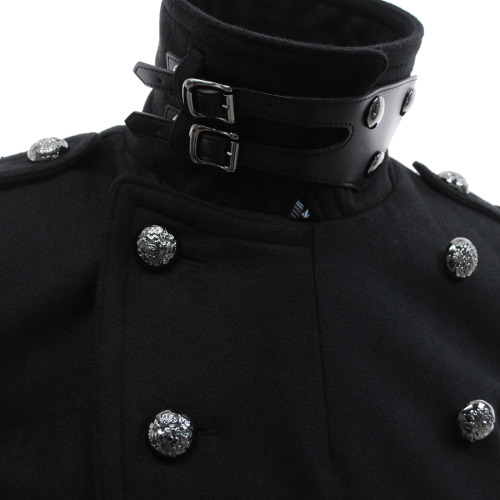
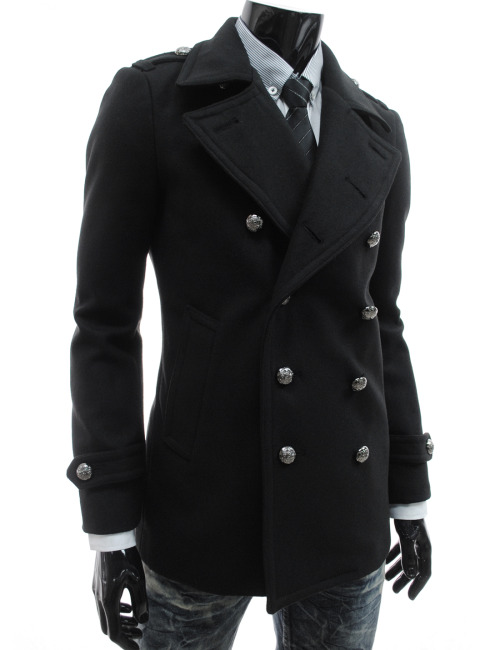
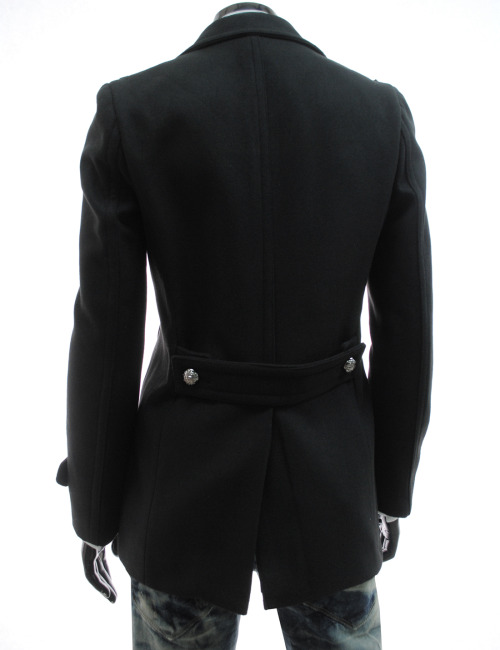

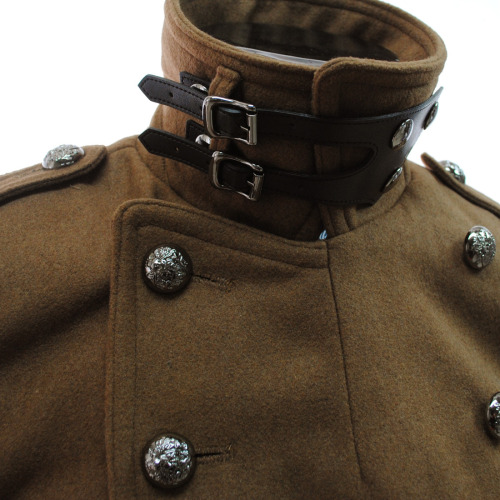

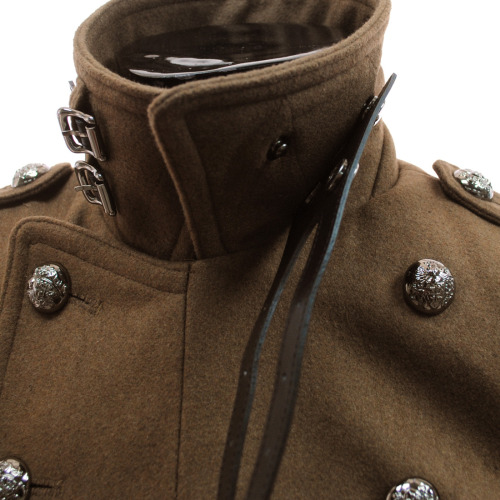



Slim Fit Double Breasted Leather Neck Belt 12 Button Wool Coat


Essays
Here’s a (non-exhaustive) list of essays I like/find interesting/are food for thought; I’ve tried to sort them as much as possible. The starred (*) ones are those I especially love
also quick note: some of these links, especially the ones that are from books/anthologies redirect you to libgen or scihub, and if that doesn’t work for you, do message me; I’d be happy to send them across!
Literature + Writing
Godot Comes to Sarajevo - Susan Sontag
The Strangeness of Grief - V. S. Naipaul*
Memories of V. S. Naipaul - Paul Theroux*
A Rainy Day with Ruskin Bond - Mayank Austen Soofi
How Albert Camus Faced History - Adam Gopnik
Listen, Bro - Jo Livingstone
Rachel Cusk Gut-Renovates the Novel - Judith Thurman
Lost in Translation: What the First Line of “The Stranger” Should Be - Ryan Bloom
The Duke in His Domain - Truman Capote*
The Cult of Donna Tartt: Themes and Strategies in The Secret History - Ana Rita Catalão Guedes
Never Do That to a Book - Anne Fadiman*
Affecting Anger: Ideologies of Community Mobilisation in Early Hindi Novel - Rohan Chauhan*
Why I Write - George Orwell*
Rimbaud and Patti Smith: Style as Social Deviance - Carrie Jaurès Noland*
Art + Photography (+ Aesthetics)
Looking at War - Susan Sontag*
Love, sex, art, and death - Nan Goldin, David Wojnarowicz
Lyons, Szarkowski, and the Perception of Photography - Anne Wilkes Tucker
The Feminist Critique of Art History - Thalia Gouma-Peterson, Patricia Mathews
In Plato’s Cave - Susan Sontag*
On reproduction of art (Chapter 1, Ways of Seeing) - John Berger*
On nudity and women in art (Chapter 3, Ways of Seeing) - John Berger*
Kalighat Paintings - Sharmishtha Chaudhuri
Daydreams and Fragments: On How We Retrieve Images From the Past - Maël Renouard
Arthur Rimbaud: the Aesthetics of Intoxication - Enid Rhodes Peschel
Cities
Tragic Fable of Mumbai Mills - Gyan Prakash
Whose Bandra is it? - Dustin Silgardo*
Timur’s Registan: noblest public square in the world? - Srinath Perur
The first Starbucks coffee shop, Seattle - Colin Marshall*
Chhatrapati Shivaji Terminus, Mumbai’s iconic railway station - Srinath Perur
From London to Mumbai and Back Again: Gentrification and Public Policy in Comparative Perspective - Andrew Harris
The Limits of “White Town” in Colonial Calcutta - Swati Chattopadhyay
The Metropolis and Mental Life - Georg Simmel
Colonial Policy and the Culture of Immigration: Citing the Social History of Varanasi - Vinod Kumar, Shiv Narayan
A Caribbean Creole Capital: Kingston, Jamaica - Coln G. Clarke (from Colonial Cities by Robert Ross, Gerard J. Telkamp
The Colonial City and the Post-Colonial World - G. A. de Bruijne
The Nowhere City - Amos Elon*
The Vertical Flâneur: Narratorial Tradecraft in the Colonial Metropolis - Paul K. Saint-Amour
Philosophy
The trolley problem problem - James Wilson
A Brief History of Death - Nir Baram
Justice as Fairness: Political not Metaphysical - John Rawls*
Should Marxists be Interested in Exploitation? - John E. Roemer
The Discomfort You’re Feeling is Grief - Scott Berinato*
The Pandemic and the Crisis of Faith - Makarand Paranjape
If God Is Dead, Your Time is Everything - James Wood
Giving Up on God - Ronald Inglehart
The Limits of Consensual Decision - Douglas Rae*
The Science of “Muddling Through” - Charles Lindblom*
History
The Gruesome History of Eating Corpses as Medicine - Maria Dolan
The History of Loneliness - Jill Lepore*
From Tuskegee to Togo: the Problem of Freedom in the Empire of Cotton - Sven Beckert*
Time, Work-Discipline, and Industrial Capitalism - E. P. Thompson*
All By Myself - Martha Bailey*
The Geographical Pivot of History - H. J. Mackinder
The sea/ocean
Rim of Life - Manu Pillai
Exploring the Indian Ocean as a rich archive of history – above and below the water line - Isabel Hofmeyr, Charne Lavery
‘Piracy’, connectivity and seaborne power in the Middle Ages - Nikolas Jaspert (from The Sea in History)*
The Vikings and their age - Nils Blomkvist (from The Sea in History)*
Mercantile Networks, Port Cities, and “Pirate” States - Roxani Eleni Margariti
Phantom Peril in the Arctic - Robert David English, Morgan Grant Gardner*
Assorted ones on India
A departure from history: Kashmiri Pandits, 1990-2001 - Alexander Evans *
Writing Post-Orientalist Histories of the Third World - Gyan Prakash
Empire: How Colonial India Made Modern Britain - Aditya Mukherjee
Feminism and Nationalism in India, 1917-1947 - Aparna Basu
The Epic Riddle of Dating Ramayana, Mahabharata - Sunaina Kumar*
Caste and Politics: Identity Over System - Dipankar Gupta
Our worldview is Delhi based*
Sports (you’ll have to excuse the fact that it’s only cricket but what can i say, i’m indian)
‘Massa Day Done:’ Cricket as a Catalyst for West Indian Independence: 1950-1962 - John Newman*
Playing for power? rugby, Afrikaner nationalism and masculinity in South Africa, c.1900–70 - Albert Grundlingh
When Cricket Was a Symbol, Not Just a Sport - Baz Dreisinger
Cricket, caste, community, colonialism: the politics of a great game - Ramachandra Guha*
Cricket and Politics in Colonial India - Ramchandra Guha
MS Dhoni: A quiet radical who did it his way*
Music
Brega: Music and Conflict in Urban Brazil - Samuel M. Araújo
Color, Music and Conflict: A Study of Aggression in Trinidad with Reference to the Role of Traditional Music - J. D. Elder
The 1975 - ‘Notes On a Conditional Form’ review - Dan Stubbs*
Life Without Live - Rob Sheffield*
How Britney Spears Changed Pop - Rob Sheffield
Concert for Bangladesh
From “Help!” to “Helping out a Friend”: Imagining South Asia through the Beatles and the Concert for Bangladesh - Samantha Christiansen
Gender
Clothing Behaviour as Non-verbal Resistance - Diana Crane
The Normalisation of Queer Theory - David M. Halperin
Menstruation and the Holocaust - Jo-Ann Owusu*
Women’s Suffrage the Democratic Peace - Allan Dafoe
Pink and Blue: Coloring Inside the Lines of Gender - Catherine Zuckerman*
Women’s health concerns are dismissed more, studied less - Zoanne Clack
Food
How Food-Obsessed Millennials Shape the Future of Food - Rachel A. Becker (as a non-food obsessed somewhat-millennial, this was interesting)
Colonialism’s effect on how and what we eat - Coral Lee
Tracing Europe’s influence on India’s culinary heritage - Ruth Dsouza Prabhu
Chicken Kiev: the world’s most contested ready-meal*
From Russia with mayo: the story of a Soviet super-salad*
The Politics of Pancakes - Taylor Aucoin*
How Doughnuts Fuelled the American Dream*
Pav from the Nau
A Short History of the Vada Pav - Saira Menezes
Fantasy (mostly just harry potter and lord of the rings)
Purebloods and Mudbloods: Race, Species, and Power (from The Politics of Harry Potter)
Azkaban: Discipline, Punishment, and Human Rights (from The Politics of Harry Potter)*
Good and Evil in J. R. R. Tolkien’s Lengendarium - Jyrki Korpua
The Fairy Story: J. R. R. Tolkien and C. S. Lewis - Colin Duriez (from Tree of Tales)*
Tolkien’s Augustinian Understanding of Good and Evil: Why The Lord of the Rings Is Not Manichean - Ralph Wood (from Tree of Tales)*
Travel
The Hidden Cost of Wildlife Tourism
Chronicles of a Writer’s 1950s Road Trip Across France - Kathleen Phelan
On the Early Women Pioneers of Trail Hiking - Gwenyth Loose
On the Mythologies of the Himalaya Mountains - Ed Douglas*
More random assorted ones
The cosmos from the wheelchair (The Economist obituaries)*
In El Salvador - Joan Didion
Scientists are unravelling the mystery of pain - Yudhijit Banerjee
Notes on Nationalism - George Orwell
Politics and the English Language - George Orwell*
What Do the Humanities Do in a Crisis? - Agnes Callard*
The Politics of Joker - Kyle Smith
Sushant Singh Rajput: The outsider - Uday Bhatia*
Credibility and Mystery - John Berger
happy reading :)
A Series of Unfortunate Events is a Passover Story

So I’ll be honest, I’m not the best Jew to be writing this post. I first saw Fiddler on the Roof at age 19, and the first words out of my mouth were, “Wow! This is really Jewish!” (Meanwhile, my mom was commenting on the Yiddish anachronisms of this play about Russian Jews, because she’s a good Jew who actually Knows Jewish Things) But I hadn’t really heard or seen much about just how incredibly Jewish A Series of Unfortunate Events is, which is a shame because Lemony Snicket/Daniel Handler is himself Jewish. So Jewish, in fact, that he helped write the New American Haggadah (including a part about how, just as there are Four [types of] Children who ought to be accommodated during Passover, there are Four Parents who really ought to be ignored.) But seeing as I can’t find anyone better to write about all the cool Jewish culture and symbolism in A Series of Unfortunate Events, I’ll take over until someone else comes along and does a better job.
Spoiler warning, of course. There’s a lot of deep lore that gains new meaning when looked at through a Jewish lens, including the symbolism behind horseradish and the sugar bowl.
Keep reading
Sorry if this is a stupid question but... What's LSUA? I see that you tag things with it but I can't figure out what it stands for. Maybe it's because it's 2am... These late-night browsing sessions do get a little out of hand.
A snicketophile reader, confused by mysterious initials? O, poetic justice.
LSUA stands for: “Lemony Snicket’s Unauthorized Autobiography”.
TBL stands for “The Beatrice Letters”.
FU:13SI stands for “Filer Under: 13 suspicious incidents”.
TBB:RE stands for “The Bad Beginning: Rare Edition”.
These are all the supplementary materials acknowledged as 100% canonical. The jury is still out on “The Dismal Dinner”, “A calendar of Unfortunate Events”, “The Puzzling Puzzles”… Because we don’t really know if these were actually written/approved by Daniel Handler. I sometimes refer to their contents in my theories but extreme caution is advised.
I’m sure you get this question all the time, so I’m really sorry if this is repetitive, but how do you start screenwriting? I’ve been writing fiction pretty much forever, but I’ve recently had a few ideas that would work best as a TV show. How do you actually start? What do I need to know before my first attempt? Do you need any qualifications to become an actual screenwriter? Thank you so much!
Oh that's okay, I'd love to talk screenwriting! Seriously. Come drop in with screenwriting asks whenever you want to.
If the concept of screenwriting is completely new to you, I suggest you start reading screenplays to familiarize yourself with how to properly format and build one. You can find free screenplays to read here and here, or you can search on google for scripts of TV-shows and movies that you like. Watching movies and TV-shows is VITAL.
how many pages should my script be?
A quick guide to screenwriting
Switching from novels to screenwriting
What words in a script should be capitalized?
What is a beat?
The importance of mundane scenes (TV-shows)
Implying tone and using parentheticals
How do you write action lines?
Serialized or episodic TV? (TV-shows)
Tip for writing plot twists
Scripts I read
How to learn screenwriting at home (video format) (with a ghost)
A degree isn't necessary to become a screenwriter (but it's useful in terms of learning the industry and building connections). Most important thing is that you know your terminology, how to structure a script, and how to write a compelling story.
I just realized, I just bloody realized, Moist Von Lipwig’s story arc is a game of Monopoly through the eyes of a conman going through the board and winning all the pieces.
He has the top hat, the dog, the train (which replaces to automotive in newer boards) the friendship of the Seamstress’ Guild (thimble), the walking iron called Gladys, the boot (he’s the incarnation of the Disc God Fedecks who has winged boots) and also the bag of money.* He goes to jail, but eventually gets to pass and go. He’s integral in the rehabilitation of civic buildings (post office, bank, mint, the acquisition of land to build a railway and then adding stations to said railway), the owner of up market private property, and also he invents paper money which everyone sort of thinks of as a bit of a game.
His very name, Moist Von Lipwig, is a pun about wearing a fake lip wig or mustache. Like so:

Lord Vetinari is quite literally using him to play a life size version of Monopoly with the city. And winning.
(Amendment: Adora with hear deadly footwear is also the shoe/boot.)
(* Alternates: Sam Vimes is boots, Gaspode and Beggars Guild is dog, Wheelbarrow is Harry King, Thimble is Seamstress Guild, Battlehsip/canon is Assassins Guild/Nobility, Money Bag is Thieves Guild, leaving Moist as Top Hat and Train. ANKH-MORPORK MONOPOLY, GIVE IT TO ME)
((edited for typos, too busy flailing))!!!!!
-
 fierezza liked this · 2 years ago
fierezza liked this · 2 years ago -
 delirioushrimp liked this · 4 years ago
delirioushrimp liked this · 4 years ago -
 mypinchethingsilikesoyeah reblogged this · 4 years ago
mypinchethingsilikesoyeah reblogged this · 4 years ago -
 mypinchethingsilikesoyeah liked this · 4 years ago
mypinchethingsilikesoyeah liked this · 4 years ago -
 lovemakesfools liked this · 4 years ago
lovemakesfools liked this · 4 years ago -
 romavitae liked this · 4 years ago
romavitae liked this · 4 years ago -
 dottiepau reblogged this · 4 years ago
dottiepau reblogged this · 4 years ago -
 dottiepau liked this · 4 years ago
dottiepau liked this · 4 years ago -
 yakugonori reblogged this · 4 years ago
yakugonori reblogged this · 4 years ago -
 yakugonori liked this · 4 years ago
yakugonori liked this · 4 years ago -
 hija-del-universo liked this · 4 years ago
hija-del-universo liked this · 4 years ago -
 pumpkinteapot liked this · 4 years ago
pumpkinteapot liked this · 4 years ago -
 tellmeallthethingsyouwanttodo liked this · 4 years ago
tellmeallthethingsyouwanttodo liked this · 4 years ago -
 swiftlyraf liked this · 4 years ago
swiftlyraf liked this · 4 years ago -
 shadow-of-wonder liked this · 4 years ago
shadow-of-wonder liked this · 4 years ago -
 dancinginthevelvetmoon reblogged this · 4 years ago
dancinginthevelvetmoon reblogged this · 4 years ago -
 dancinginthevelvetmoon liked this · 4 years ago
dancinginthevelvetmoon liked this · 4 years ago -
 live4nd1earn liked this · 4 years ago
live4nd1earn liked this · 4 years ago -
 violetrose11 liked this · 4 years ago
violetrose11 liked this · 4 years ago -
 faceofteeth liked this · 4 years ago
faceofteeth liked this · 4 years ago -
 xmisguidedhope liked this · 4 years ago
xmisguidedhope liked this · 4 years ago -
 shrewdslytherin reblogged this · 4 years ago
shrewdslytherin reblogged this · 4 years ago -
 shrewdslytherin liked this · 4 years ago
shrewdslytherin liked this · 4 years ago -
 castielanarquista liked this · 4 years ago
castielanarquista liked this · 4 years ago -
 heroestovillains liked this · 4 years ago
heroestovillains liked this · 4 years ago -
 legendaryartdesigndream liked this · 4 years ago
legendaryartdesigndream liked this · 4 years ago -
 cheekyponnama reblogged this · 4 years ago
cheekyponnama reblogged this · 4 years ago -
 mozziewinters liked this · 4 years ago
mozziewinters liked this · 4 years ago -
 savagemanoban liked this · 4 years ago
savagemanoban liked this · 4 years ago -
 bowie-benedict liked this · 4 years ago
bowie-benedict liked this · 4 years ago -
 ravaii-newzealand liked this · 4 years ago
ravaii-newzealand liked this · 4 years ago -
 lunalouvre-blog liked this · 4 years ago
lunalouvre-blog liked this · 4 years ago -
 thnksp3t3 liked this · 4 years ago
thnksp3t3 liked this · 4 years ago -
 two-frogs-in-a-trenchcoat liked this · 4 years ago
two-frogs-in-a-trenchcoat liked this · 4 years ago -
 lusiante reblogged this · 4 years ago
lusiante reblogged this · 4 years ago -
 ceciltapiasstuff liked this · 4 years ago
ceciltapiasstuff liked this · 4 years ago -
 mat-suka liked this · 4 years ago
mat-suka liked this · 4 years ago -
 certaintacoobservation liked this · 4 years ago
certaintacoobservation liked this · 4 years ago -
 alleytownstrays liked this · 4 years ago
alleytownstrays liked this · 4 years ago -
 leticiaparedes25 reblogged this · 5 years ago
leticiaparedes25 reblogged this · 5 years ago -
 leticiaparedes25 liked this · 5 years ago
leticiaparedes25 liked this · 5 years ago -
 jfxt-67-blog liked this · 5 years ago
jfxt-67-blog liked this · 5 years ago -
 theimpossibleduck liked this · 5 years ago
theimpossibleduck liked this · 5 years ago -
 piratepearls liked this · 5 years ago
piratepearls liked this · 5 years ago
